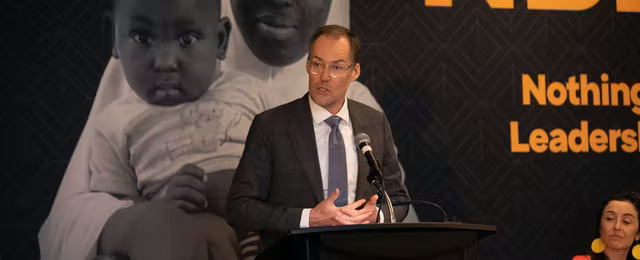Nigeria is facing a funding shortfall of over$100 million for its ongoing fight against HIV, Tuberculosis (TB), and Malaria, following a reduction in financial support from the Global Fund. This challenge dominated discussions at the 70th Annual Retreat and General Assembly Meeting of the Country Coordinating Mechanism (CCM) Nigeria, held in Lagos.
The meeting, convened in partnership with the National Assembly, underscored the urgency of boosting domestic resource mobilization to sustain the country’s disease response efforts. The call comes amid a broader health sector reform agenda being driven by the Federal Ministry of Health and Social Welfare to expand access, improve outcomes, and strengthen social welfare.
Nigeria was initially allocated over $933 million under the Global Fund Grant Cycle 7 for the 2024–2026 period. However, the grant has been cut to about $830 million, prompting the Global Fund’s Nigeria Portfolio Manager to appeal to Nigerian authorities to address the resulting shortfall through increased local funding.
Speaking at the event, the Global Fund representative, Dr. Jean-Thomas Nouboussi, explained that the 11% cut in allocation is due to global economic constraints and a dip in donor commitments. He called on the National Assembly to lead in mobilizing domestic funds and begin laying the groundwork for long-term sustainability in disease control financing.
The Executive Secretary of CCM Nigeria, Ibrahim Tajudeen, also warned of emerging threats to global health financing. He urged the country to act swiftly to protect the gains made in public health over the past two decades. These gains include a significant drop in HIV prevalence from 5.8% to 1.3%, a reduction in malaria infection rates from 42% to 22%, and the detection of over 400,000 TB cases in 2024 alone.
Tajudeen noted that Nigeria cannot afford to rely solely on international partners, stressing that without urgent local interventions, recent progress could be reversed.
The National Assembly echoed this concern. Chair of the House Committee on HIV/AIDS, Malaria, Leprosy, and Malaria Control, Rt. Hon. Amobi Godwin Ogah, emphasized the need for transparency, efficient fund management, and accountability in health spending. He proposed embedding legislative oversight into CCM Nigeria’s structure by appointing a National Assembly representative to its board, a move he believes will improve collaboration and ensure strategic alignment with national healthcare goals.
As global health funding becomes more uncertain, stakeholders at the retreat reaffirmed the importance of building strong domestic partnerships and systems that can withstand external funding shocks while continuing to serve Nigeria’s most vulnerable populations.









